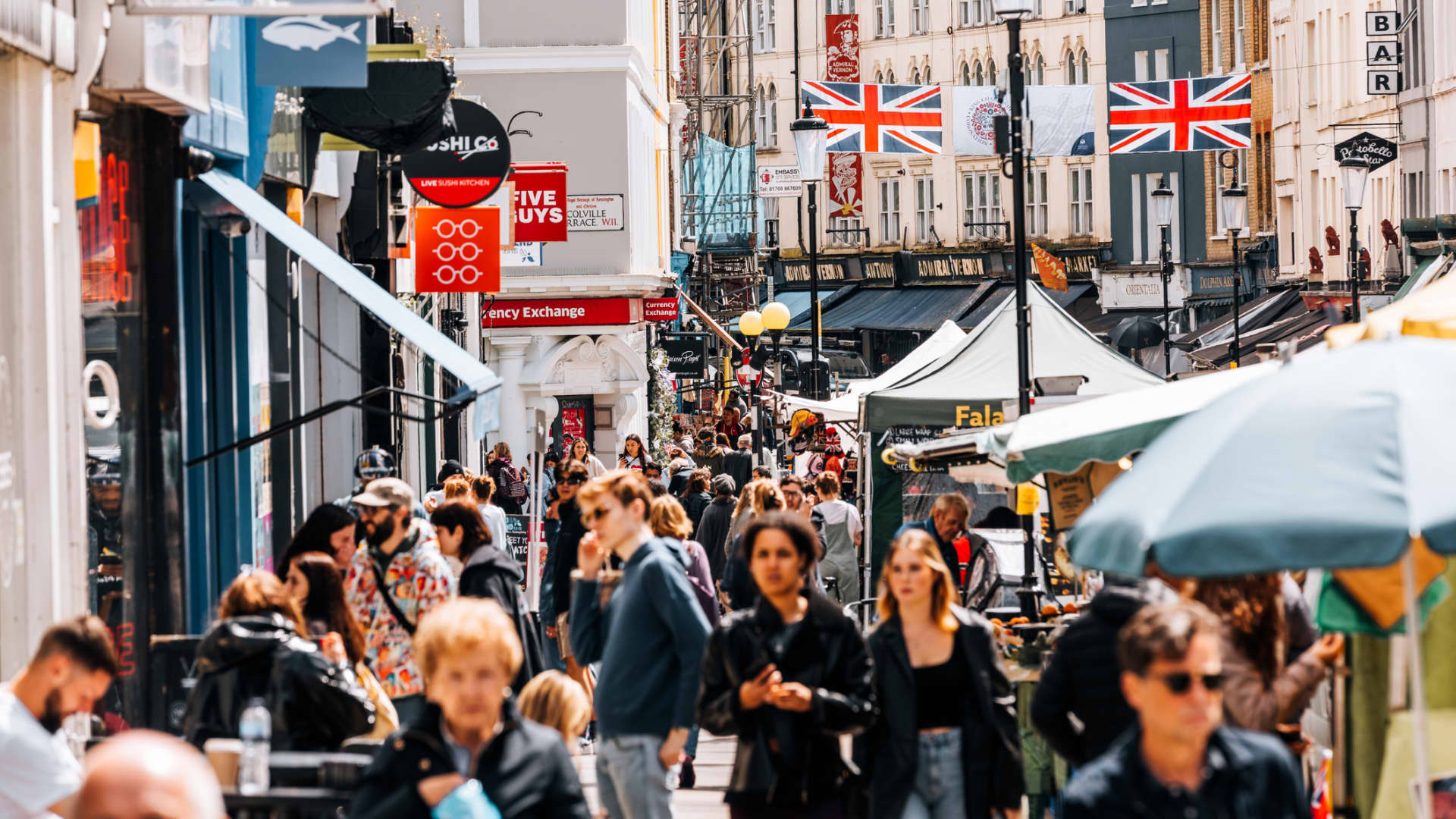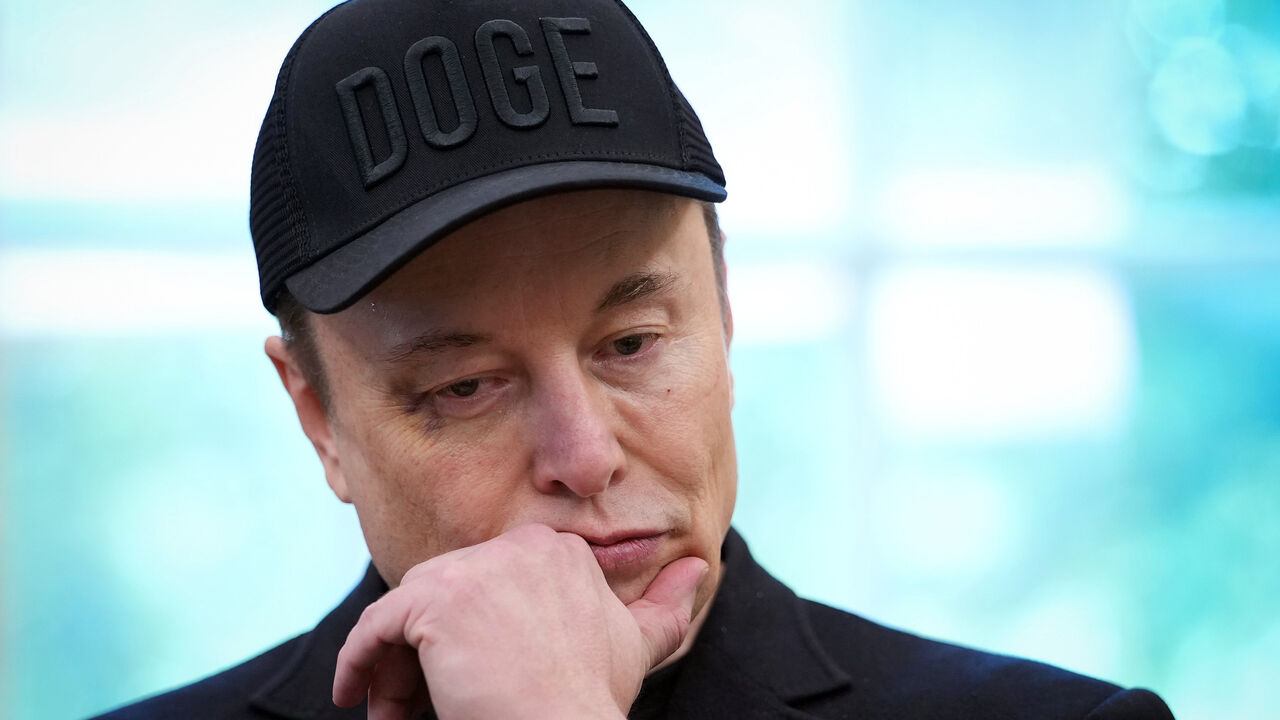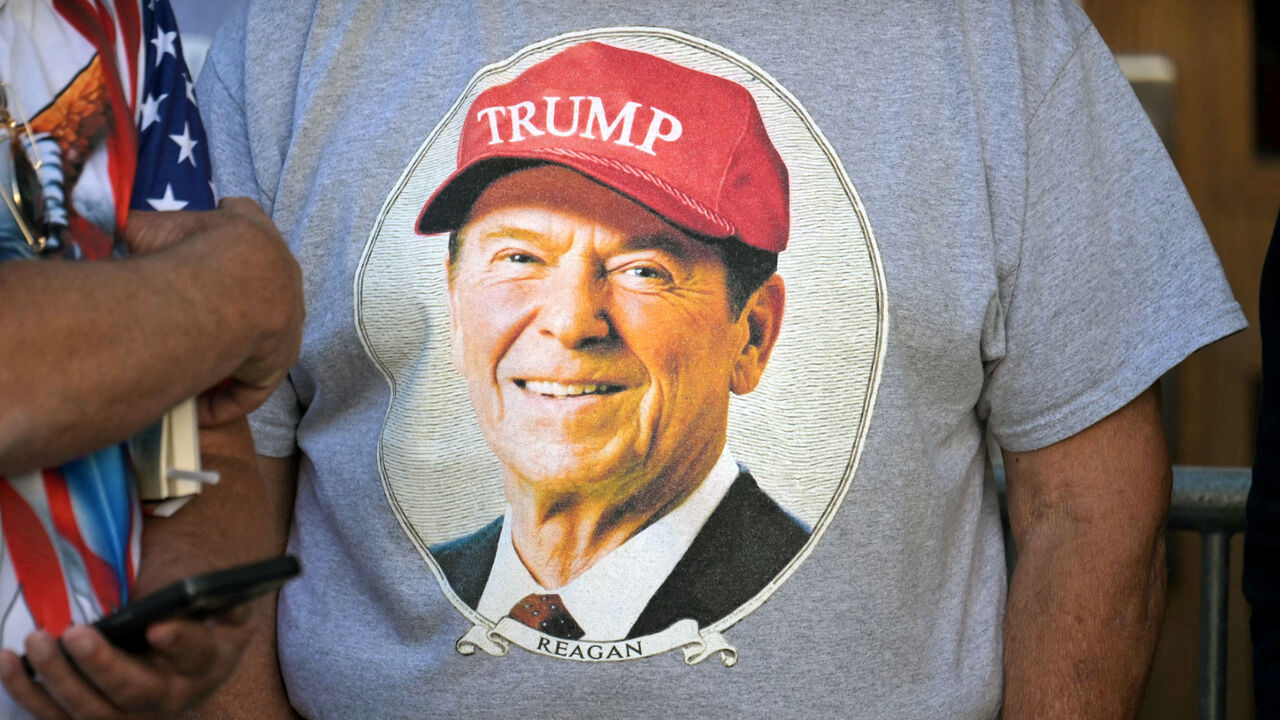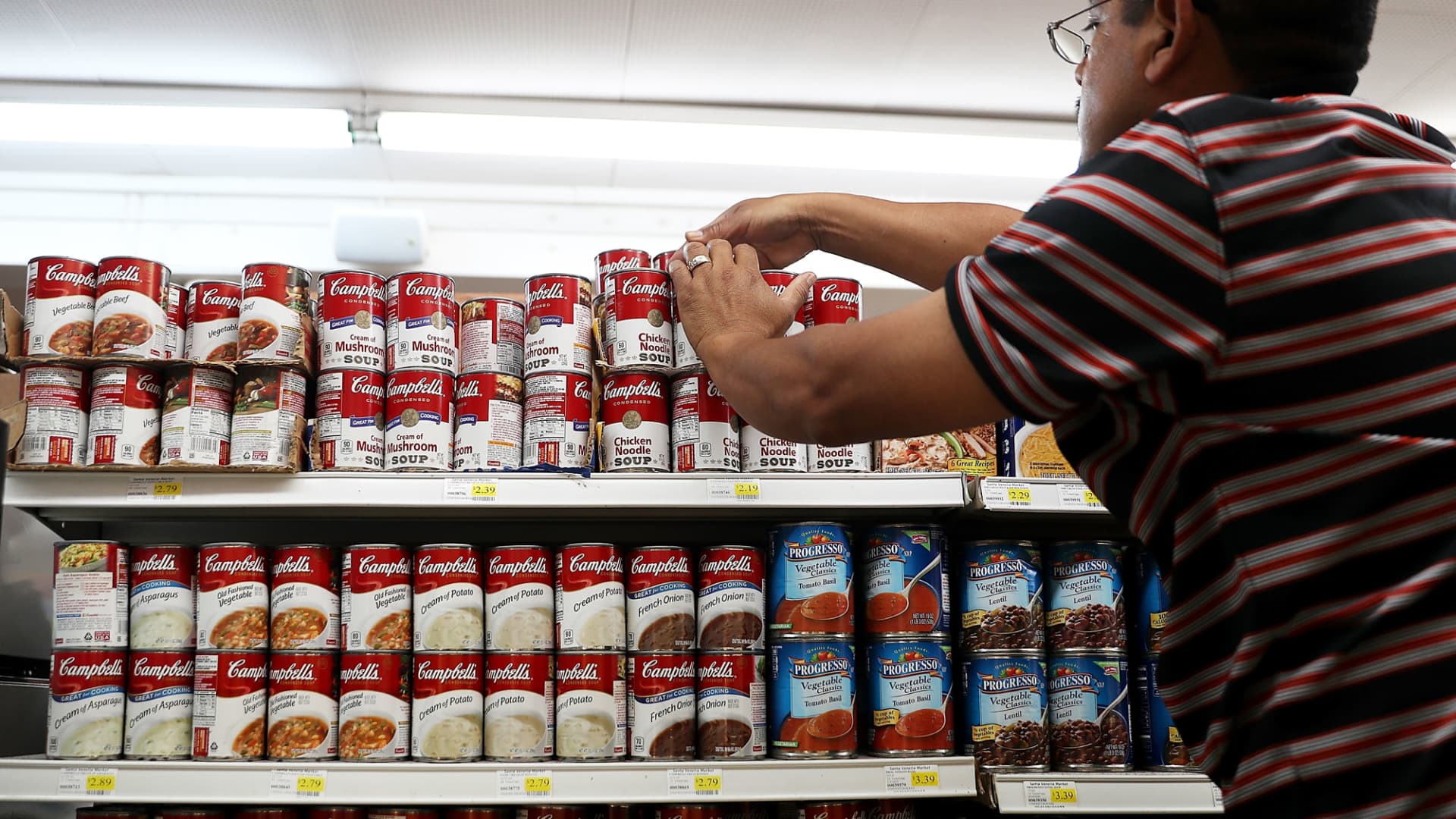Alexander Spatari | Moment | Getty Images
U.K. inflation held steady at the Bank of England’s 2% target in June, Official National Statistics data showed Wednesday.
The headline reading came in above analyst expectations at 1.9%, according to economists polled by Reuters, and was in line with the previous 2% reading in May.
Sterling rose slightly shortly after the release, trading at $1.2977 by 7:21 a.m. London time.
Services inflation — which is closely watched by the BOE, given its dominance within the U.K. economy and its reflection of domestically-generated price rises — remained at 5.7% in June.
Core inflation, excluding energy, food, alcohol and tobacco, was 3.5%, also on par with the 3.5% recorded in May.
Higher restaurant and hotel prices were the largest contributors to upward pressure, while clothing and footwear costs posted the biggest declines, the ONS said.
Consumers are increasing their spending on leisure activities over the summer months, including on cultural experiences and concerts as high-profile artists such as Taylor Swift, Bruce Springsteen, Pink and Sting tour the country.
Bank of England rate cut in focus
Investors have been eyeing a potential August interest rate cut, as headline inflation showed signs of sustained easing. Market expectations of such a trim waned just after the release of the latest print.
Jane Foley, head of FX strategy at Rabobank, said that the stubbornness of services inflation could invite caution from BOE policymakers ahead of their meeting next month.
“It’s really not a done deal for August,” she told CNBC’s “Squawk Box Europe” on Wednesday.
“I think many of the members of the policy committee, and a lot of economists will be looking at that services sector inflation and worrying a bit,” she added.
Jonathan Haskel, a member of the BOE’s Monetary Policy Committee, last week said that he thought rates should remain on hold due to continued pressures in the labor market.
BOE chief economist Huw Pill added later in the week that the timing of a rate cut remained an “open question” due to “uncomfortable strength” in wage growth.
The BOE’s main interest rate has stayed at a 16-year high of 5.25% since August 2023, back when inflation was 7.9%.
Wednesday’s reading is the first since the U.K.’s general election on July 4, but does not reflect the change in government. The U.K.’s new chief secretary to the Treasury, Darren Jones, said in a statement that prices remain too high.
“We face the legacy of fourteen years of chaos and economic irresponsibility. That is why this Government is taking the tough decisions now to fix the foundations so we can rebuild Britain and make every part of Britain better off,” he said Wednesday.

 Personal Finance1 week ago
Personal Finance1 week ago
 Blog Post1 week ago
Blog Post1 week ago
 Economics6 days ago
Economics6 days ago
 Economics1 week ago
Economics1 week ago
 Accounting6 days ago
Accounting6 days ago
 Personal Finance1 week ago
Personal Finance1 week ago
 Economics6 days ago
Economics6 days ago
 Personal Finance6 days ago
Personal Finance6 days ago





















